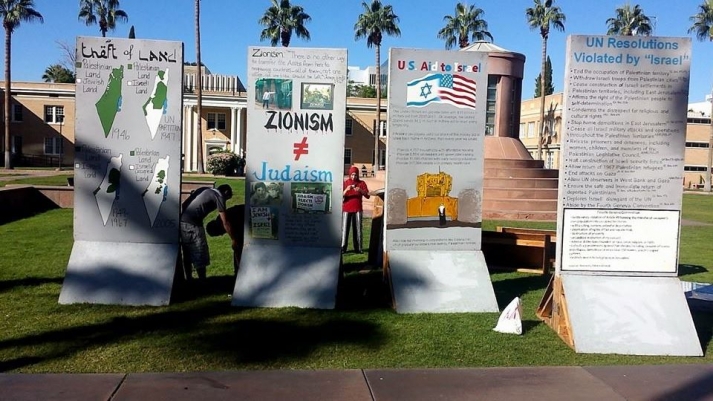The rise of anti-Semitism in U.S. colleges has alarmed conservative groups for quite some time, yet it was largely ignored by the liberal media until recently. The turning point was a spate of shocking, high-profile incidents involving student government bodies, normally bastions of political correctness and darlings of the radical left, which were covered by the New York Times, CNN and other news outlets. Forced to address this seemingly awkward issue, the media offers two rationalizations. The first argues that the Jewish students make up a largely successful group, and therefore, are not on the list of “protected species.” This argument is rather weak. Indeed, the Chinese students make up an even more successful group, but no public expression of anti-Chinese sentiments would be tolerated.
The second justification links the rise of anti-Semitism on U.S. campuses to the Arab-Israeli conflict. This theory is more to the point. However, the link between anti-Israelism and anti-Semitism is not a simple cause-and-effect relation. Rather, the two mutually reinforce each other, forming a vicious circle. Furthermore, the students do not live in a vacuum. They pick up their cues from many sources, but particularly from their professors, who show their bias with impunity.
Here is an illustration of what the students pick up. In 2013, the American Studies Association (ASA) called for a boycott of Israeli academic institutions. Asked by a reporter why Israel was singled out, while other countries have much worse human rights records, the then ASA President Curtis Marez replied, “One has to start somewhere.” We are now well into 2015, but my search has not yielded any calls for boycotts of other countries issued by the ASA. It is becoming increasingly clear that the ASA’s moral indignation will end where it began. Marez, who is a professor of ethnic studies at the University of California at San Diego, further claimed that the United States has “a particular responsibility to answer the call for boycott because it is the largest supplier of military aid to the state of Israel.” However, the U.S. provides military aid to many countries with really appalling human rights records, such as Pakistan and Egypt. Marez dismissed this argument by saying that civil society groups in those countries had not asked the ASA for a boycott.
Continue reading...
The article was originally printed in the American Thinker.
